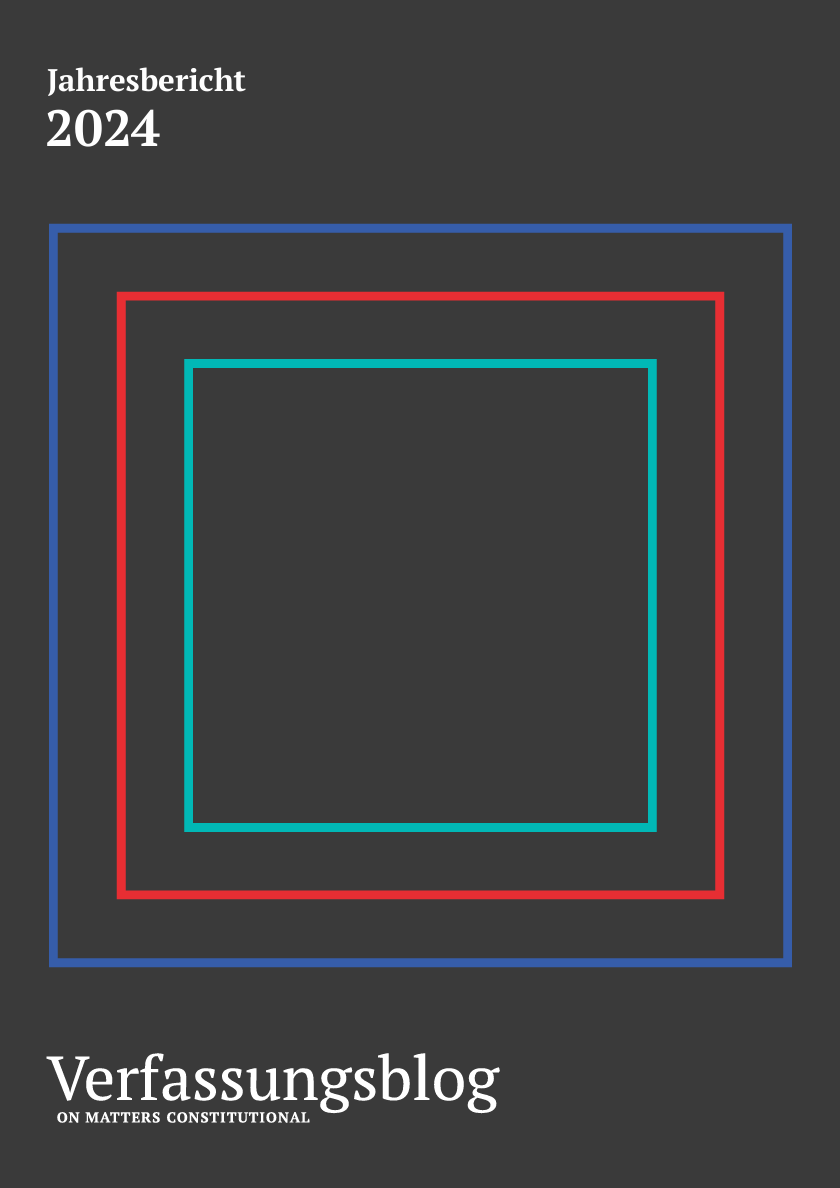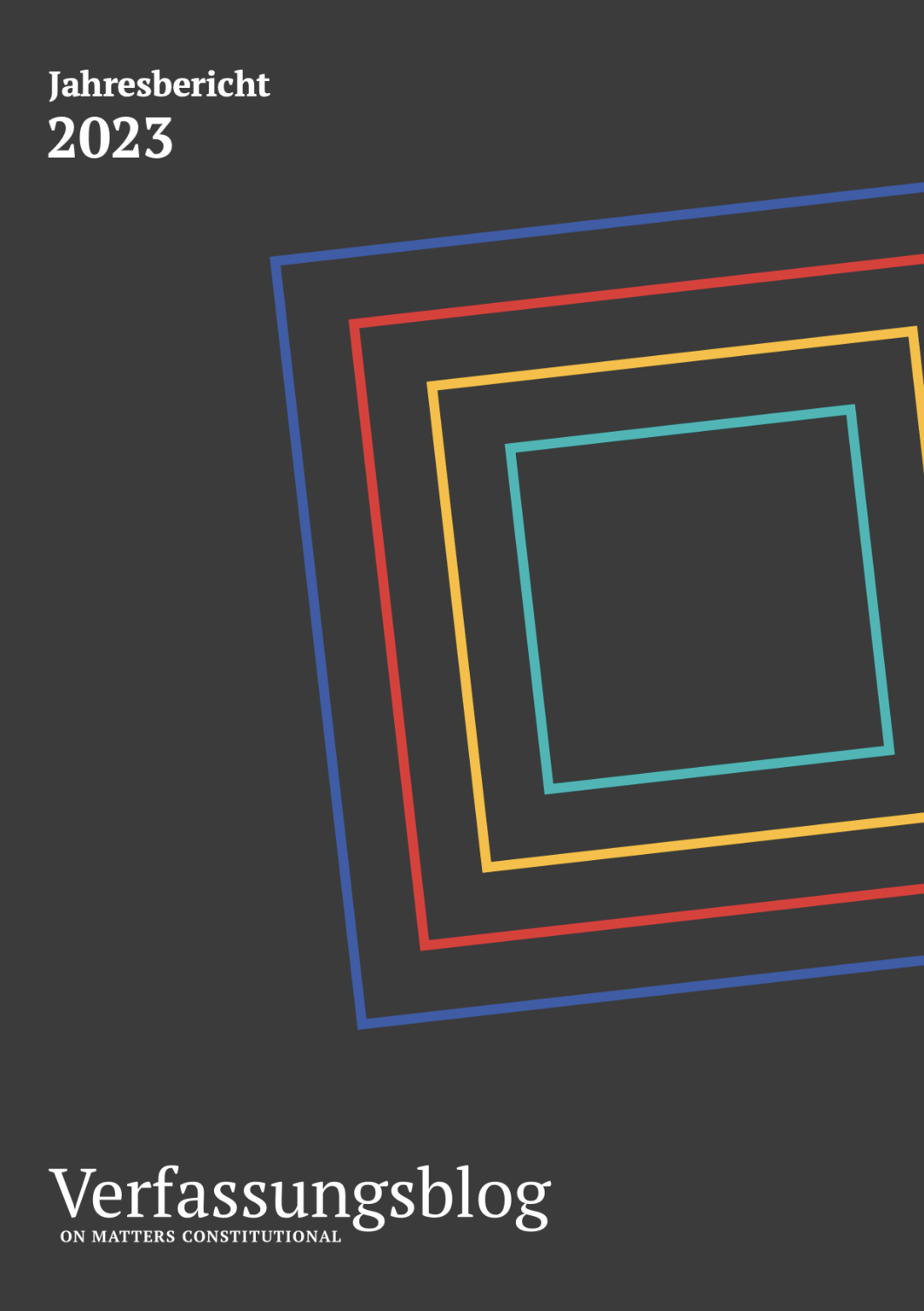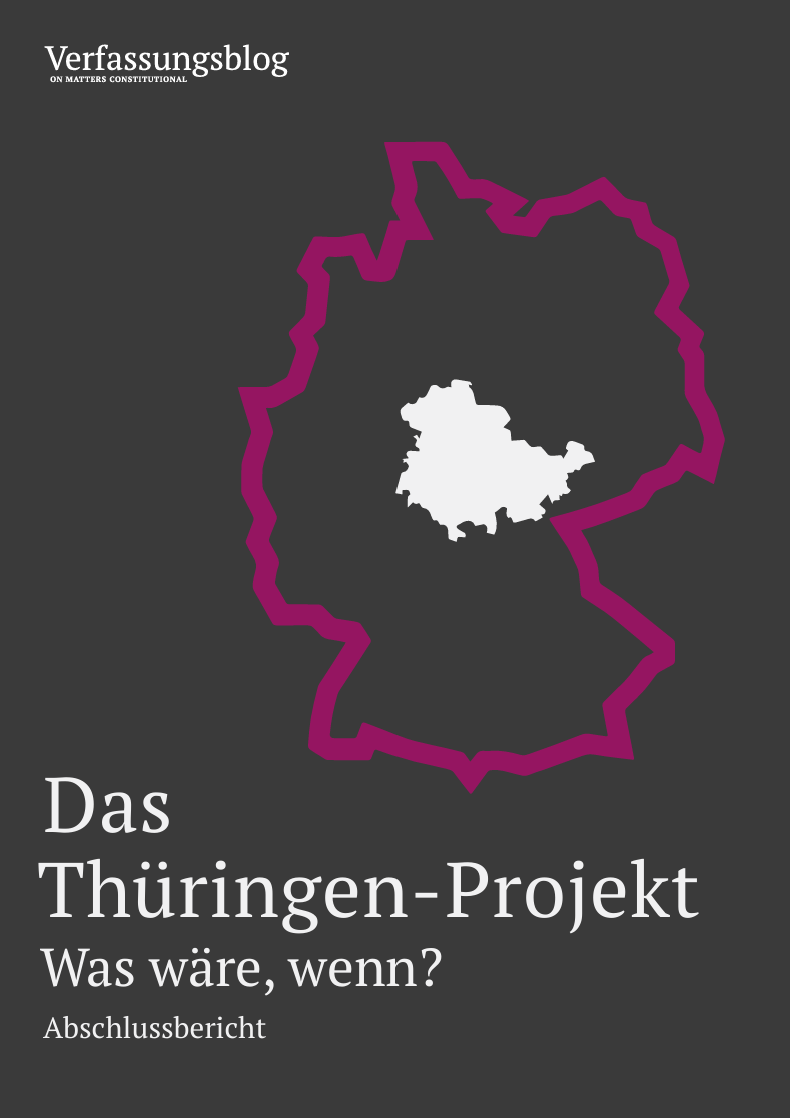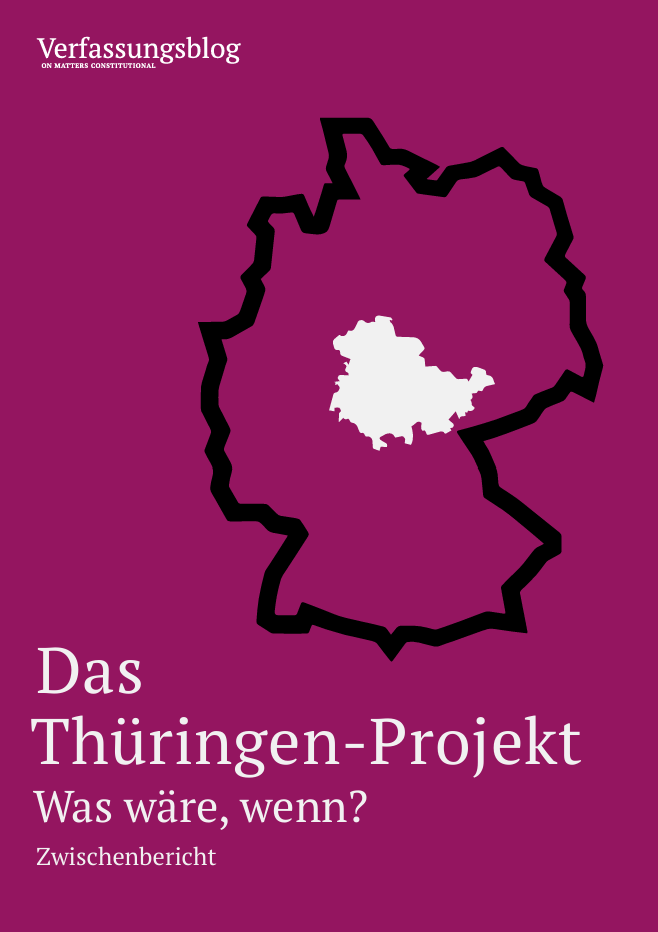Transparency
Transparency: Costs and Funding
Each year, Verfassungsblog receives several hundred submissions and proposals, resulting in roughly 800 new articles. We also curate and publish online symposia and books. Every contribution undergoes editorial review and careful editing — from first draft to publication and outreach. All of this work is carried out in-house. Our projects are designed to address current research questions and to strengthen Diamond Open Access in legal academic publishing (see our Open Access statement).
To sustain this work, we rely on a highly qualified editorial, publishing, and management team. This requires stable funding.
Verfassungsblog’s financing rests on six pillars:
- Academic libraries
- Institutional cooperations
- Donations
- Project funding
- Publication fees for symposia and books
- Advertising in our weekly editorial
Verfassungsblog is a non-profit organization. All revenue is reinvested in maintaining and developing the platform. Editorial decisions remain fully independent.
Academic Libraries
52 libraries and institutions currently support our Diamond Open Access mission through annual contributions. Central to this network is the regional library consortium in Lower Saxony (coordinated by the Niedersächsische Staats- und Universitätsbibliothek Göttingen / SUB Göttingen). In addition, twelve international institutions contribute to our funding.
If you are a researcher or librarian who believes your institution should support high-quality, up-to-date Diamond OA content, we welcome inquiries at oa[at]verfassungsblog.de.
Further information on consortium funding and the full list of institutions can be found here.
Institutional Cooperations
Verfassungsblog’s work is continuously supported by strong institutional editorial partners: the Center for Global Constitutionalism at the WZB Berlin Social Science Center and the Max Planck Institute for Comparative Public Law and International Law (MPIL) in Heidelberg. Until its conclusion in 2018, we also cooperated with the „Law in Context“ research network at Humboldt University of Berlin.
Donations
A growing share of our funding comes from donations. Recurring contributions, in particular, help secure our editorial independence. We take it as a clear vote of confidence in our work that an increasing number of readers are directly supporting our funding. In 2025, more than 1,000 individuals co-financed Verfassungsblog, and more than 300 decided to support us with recurring donations.
In recent years, our ongoing operations and project work have also been supported by organizations and initiatives such as Stiftung Mercator, Nemetschek Stiftung, Effektiv Spenden, Gemeinsam für Demokratie, and JUVE Verlag.
As a registered non-profit, we issue donation receipts. Information on our current donation campaign is available here.
Project Funding
Some of our projects are financed through third-party funding.
- The project “Acquisition Logic as a Diamond Open Access Obstacle” (ELADOAH) is carried out in cooperation with the Alexander von Humboldt Institute for Internet and Society (HIIG) and funded by the Federal Ministry for Research, Technology and Space Travel (BMFTR).
- As part of the project “Fundamentals of EU Charter Use in Society” (FOCUS), Verfassungsblog organizes and publishes academic blog symposia, articles, and books on current questions of fundamental rights protection in the EU. The FOCUS project is funded under the “Citizens, Equality, Rights and Values” (CERV) programme of the European Commission and has received support from the European Union’s “Horizon Europe” research and innovation program.
- The project “Open Constitutionalism” (OpCon) examines the conditions and strategies for establishing independent Open Access publishing organizations. It is funded by the Federal Ministry for Research, Technology and Space Travel (BMFTR).
Publication Fees for Symposia and Books
For externally edited symposia and books, we charge publication fees that cover our production costs. These formats typically include 10 to 15 contributions and engage in depth with current debates in law and legal policy.
If you are considering a symposium and — ideally — have identified a funding source, please contact us at symposium[at]verfassungsblog.de.
Detailed information on formats and costs is available here.
Advertisement
A limited portion of our financing comes from advertising in the weekly editorial. Our editorial newsletter reaches around 20.000 subscribers and offers four advertising slots. We accept advertisements for content that fits Verfassungsblog’s academic profile, including calls for papers, new publications (books, journals), job offers, academic programs, and events.
If you would like to place an advertisement, please contact us at advertise[at]verfassungsblog.de.







